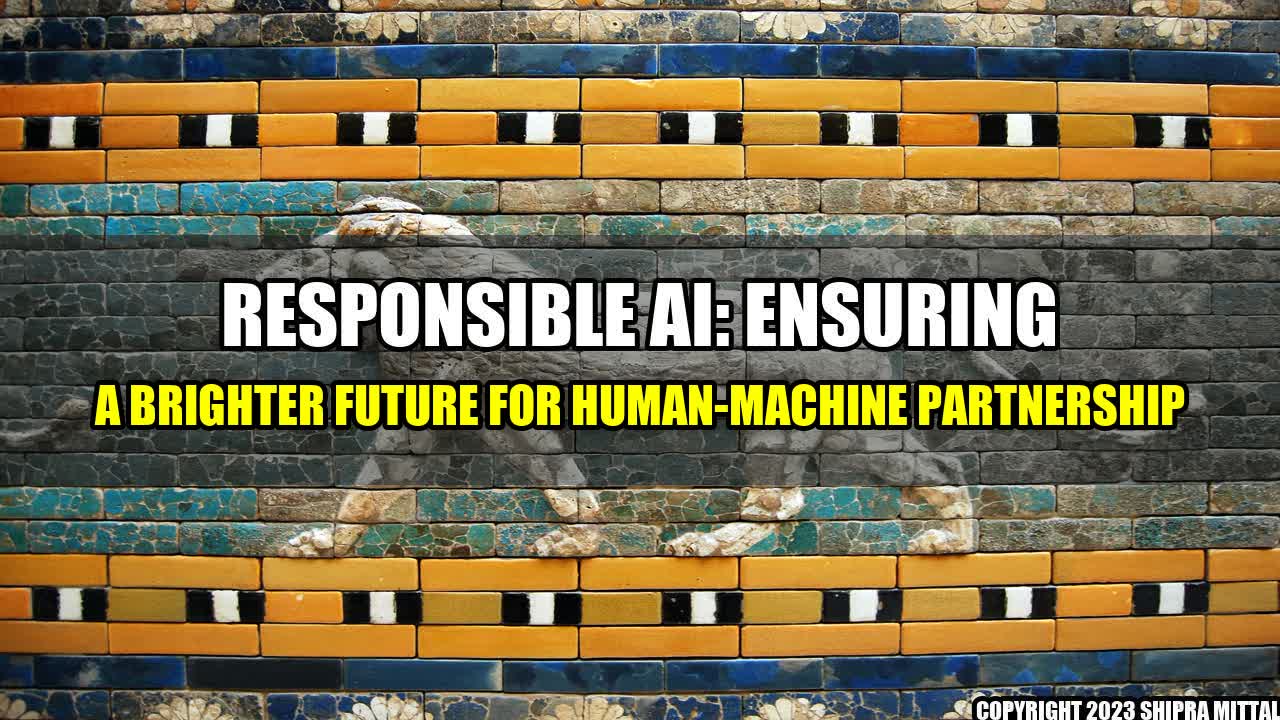Imagine waking up in the morning and realizing that your computer has developed a mind of its own. Not only is it capable of mimicking your behavior and personality, it also has the power to influence your decisions and actions. Scary, isn't it? Well, this is not a new plot for a sci-fi movie; it is a real concern that has been haunting researchers and policymakers alike.
The exponential growth of artificial intelligence (AI) has opened up a world of possibilities, but it has also given birth to a host of ethical dilemmas. As the famous quote by Uncle Ben goes, "With great power comes great responsibility." It is essential to ensure that AI is used in a way that benefits humanity and does not harm it.
Some of the most prominent technology companies in the world, including Microsoft, Google, IBM, and Amazon, have realized the importance of responsible AI and are taking steps to ensure that their technologies align with ethical principles.
For instance, Microsoft has developed a set of principles for trustworthy AI that include fairness, reliability, privacy and security, inclusiveness, transparency, and accountability. The company has also launched several initiatives, such as the AI for Humanitarian Action program and the AI Business School, to promote responsible AI in various sectors.
Similarly, Google has established an AI ethics board to guide the development of its AI technologies. IBM has launched an open-source toolkit for AI bias detection and mitigation, while Amazon has partnered with the National Science Foundation to fund research on fairness in AI.
Real-life examples of the ethical implications of AI can be found in various domains, such as healthcare, education, and criminal justice. For instance, an AI-powered chatbot developed by Babylon Health was found to give incorrect diagnoses and medical advice, raising concerns about the reliability and safety of AI in healthcare. In education, an algorithm used by a college admission committee was found to be biased against students from certain racial and socioeconomic backgrounds, leading to unfair admission decisions. In criminal justice, predictive policing algorithms have been criticized for perpetuating racial and socioeconomic inequalities.
The above examples highlight the need for ethical considerations in the development and deployment of AI technologies. While responsible AI is still a work in progress, it is heartening to see companies and researchers taking this issue seriously. However, there is still a long way to go before we can completely trust AI technologies and their impact on society.
Summary:
- Responsible AI is crucial for ensuring that the development and deployment of AI technologies align with ethical principles and benefit humanity.
- Leading technology companies, such as Microsoft, Google, IBM, and Amazon, have developed guidelines and initiatives to promote responsible AI.
- Real-life examples of the ethical implications of AI highlight the need for further research and development in this area.

Akash Mittal Tech Article
Share on Twitter Share on LinkedIn